Aside from the irritating buzzing sound, we all know that flies tend to bring diseases and illnesses to your family by contaminating your food. But did you know that they are also quite beneficial?
What is the purpose of flies? They are well-known pollinators and are classified as both predators and prey. Moreover, flies are also efficient decomposers of decayed and rotting materials, are medically relevant, and can be used as indicators of victim death in crime investigations.
To know more about their role in this world, let us find out the nature, characteristics, and behavior of flies, including the effective ways of deterring them in case they become too bothersome.
What Do Houseflies Look Like?
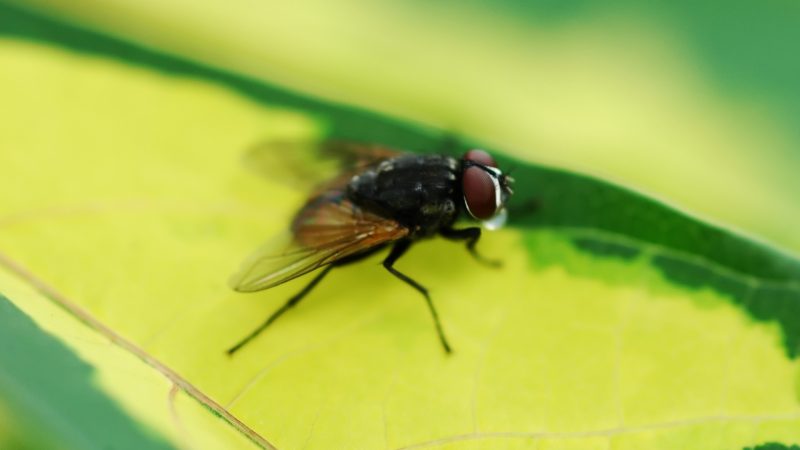
An adult fly measures, on average, ¼ inch in length and has a gray or yellowish body. It has two wings, dark sides with asymmetrical markings, a checkered abdomen, and black furrows on its thorax.
Their head consists of big eyes that are dominantly red, while its labella and proboscis are soft and spongy. Males can be distinguished from the female species through a wide space or gap between their eyes.
Moreover, their eggs are white in color and laid singly, while their larvae are typically 0.12 to 0.35 inches long in a creamy white tinge. During the pupal stage, they enclose in a case that is usually oval and 0.31 inches in length.
What Attracts Flies in Your House?
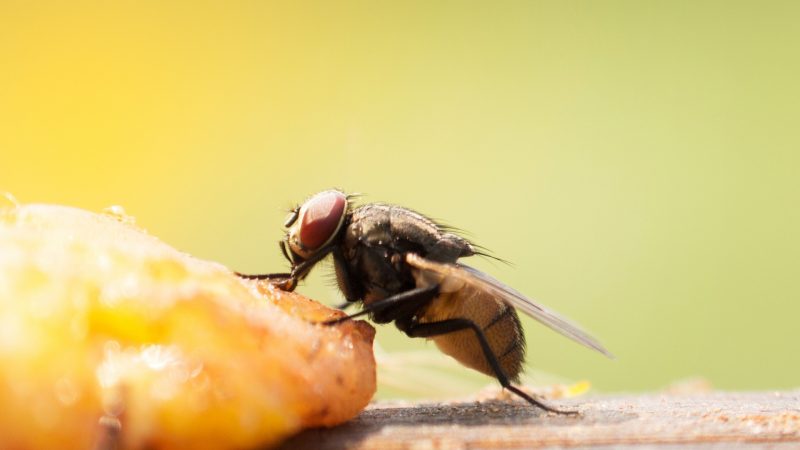
Flies are overwhelmed by decaying and rotten materials, dead bodies of animals, and uncovered and open garbage bins. They are attracted to wilting leaves and branches of plants, pet manure, and fermenting fruits.
Related: Top 10 Worst Pests That Can Infest Your House | Identification and Control Guide
What Purpose Do Flies Serve?
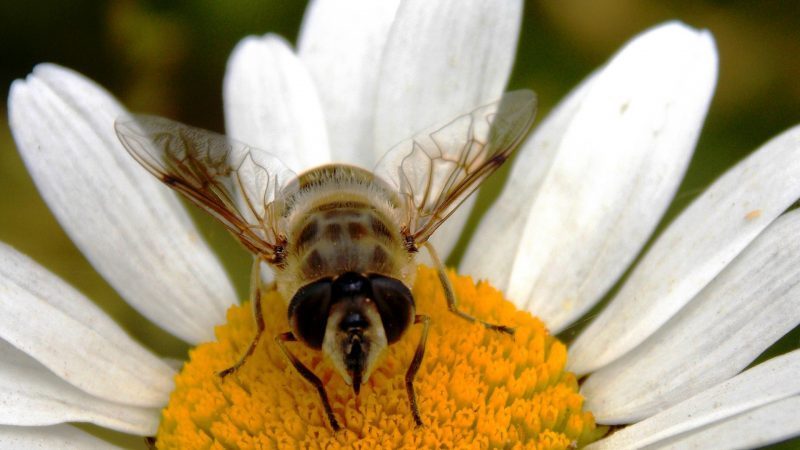
For one, they can be efficient agents of pollination, especially to flowers and plants that were not visited by bees. Additionally, they also play a beneficial role in decomposing rotten and decaying matters such as kitchen wastes, animal carcasses, and dead plants.
Lastly, they provide power and nutrition to birds, fishes, frogs, mammals, and other insects as they are considered excellent food sources and are important components of food webs.
Can a Housefly Bite You?
Generally, a housefly cannot bite you because they do not have sharp and pointed mouthparts. Their labella and proboscis (mouthparts) cannot puncture and break the skin as they are spongy and soft in character.
Are Flies Pollinators?
Flies are regarded as pollinators. They can transfer pollen from one flower to another using their spongy mouthparts. Bees and other insects may not visit flowers with no nectar or pleasant smell, but this is uncommon for flies.
Plants like voodoo lilies, catnips, and skunk cabbages will still be visited by flies even though they have pungent odors.
Are Houseflies Harmful to Humans?
Although houseflies cannot bite, they can still harm humans. They are known to be vectors of harmful microorganisms that can cause diseases like salmonella, cholera, typhoid fever, food poisoning, and dysentery.
These diseases will be spread to humans when they come into touch with contaminated food, water, or surfaces that have flies on them. Moreover, these bacteria and viruses can be acquired by flies through crawling on filth or feeding on wastes.
What Are the Diseases Fly Carries?
These are the diseases that may be carried by flies to humans:
- Cholera. It is an acute diarrheal illness brought by Vibro cholerae. This disease is acquired by humans when they ingest food and water that are contaminated by infected fecal matter. Symptoms may range from mild to severe such as diarrhea, vomiting, leg cramps, dehydration, and shock.
- Typhoid Fever. This is a sickness caused by Salmonella typhi. It can be transferred to humans through oral intake of food and water that are infested by the said bacteria. Typical symptoms include fever, headache, loss of appetite, abdominal pain, and body weakness.
- Shigellosis. This is another type of diarrhea disease that is caused by Shigella bacteria. It can be passed on to humans when a person consumes infected food and water. The most common symptoms of this sickness are loose bowel movements, fever, abdominal pain, and in some cases, bloody stools.
Other notable illnesses that may be carried by flies include eye infections such as epidemic conjunctivitis and trachoma, and skin infections such as cutaneous diphtheria and leprosy, and poliomyelitis.
Can We Live Without Flies?
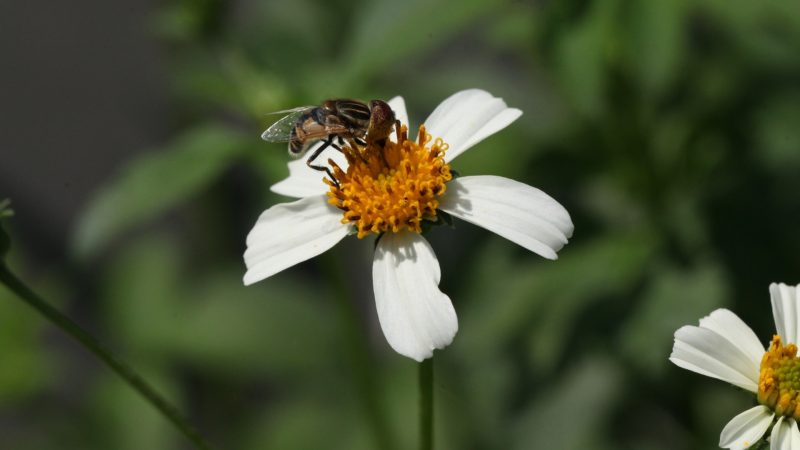
We can say that we can live without flies, but it will not be as normal as what we have right now. If there are no flies, our world will be filled with animal carcasses, garbage, house wastes, and decaying materials due to the absence of sufficient decomposing agents.
How Long Do Flies Live?
The lifespan of flies is approximately less than twelve months. In most cases, adult flies only live for one to two months, while others do not survive the larvae and pupal stage as they get eaten by predators. Others barely survive the winter season as eggs.
How Long Can a Fly Last in a House?
As long as you have fly attractants in your house, these insects will continue to swarm around your place. This means that if you don’t clean and dispose of your garbage, decaying fruits, dead plants, and other house wastes, they will continue to reside in your area.
Are Flies Dirty?
Yes. Flies frequently stay on animal feces and carcasses, garbage materials, and other rotten objects which may contain infectious bacteria and viruses. They can bring and harbor these microorganisms once they dock and land on different surfaces and locations.
Does a Fly Poop Every Time It Lands?
Since the diet of house flies are mostly liquid, their digestive tracts are constantly functioning in an active state. This results in increased motility and bowel movement which would then lead to their frequent pooping and defecation. Thus, it may be correct to say that a fly poops every time it lands.
Do Flies Mean Your House Is Dirty?
The presence of flies in your house does not necessarily imply that it is dirty or unsanitary. It only means that your place is filled with fly attractants such as open trash cans, dead leaves, and plants or fermenting fruits and vegetables.
Where Do Flies Go at Night?
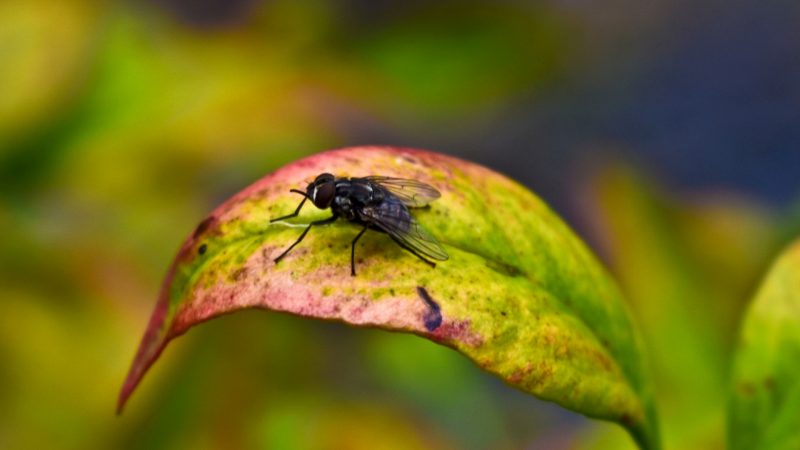
When the sun sets and night commences, flies usually go to rest. They typically hide under the leaves, tree branches, window curtains, bath stalls, and other flat surfaces where they can relax and take refuge. When the sun rises, they will start performing their daily activities again.
Where Do Flies Lay Their Eggs in a House?
If your house contains decaying wastes, open garbage bins, and rotten fruits and vegetables, there is a big possibility that the flies will transform it into a breeding place. They are greatly attracted to these types of environments so they may lay their eggs in these areas.
What Happens if You Eat Fly Eggs?
Eating fly eggs can be detrimental to your health since they are contaminated with bacteria and viruses. These microorganisms will tend to cause digestive tract infections that would usually manifest in symptoms such as fever, diarrhea, stomach upset, and vomiting.
What Gets Rid of Flies Inside Your House?
Flies can be eliminated through the use of natural repellents such as cloves, citrus fruits, basil, lavender, cayenne pepper, and lemongrass. This can be done by soaking the oils of these herbs in a piece of cotton or cloth and hanging them in the fly-infested areas of your house.
Furthermore, if you prefer to buy fly-deterring products, it is best to purchase commercial insecticides , and fly swatters as it provides instant relief from fly problems.
- READY TO SPRAY - The moment this product arrives, it is ready to...
- INSECT KILLER AND REPELLENT - The residual formula kills and...
- EASY PEST CONTROL - Attach a garden hose to this ready-to-use...
- 5,000 SQUARE FEET OF COVERAGE - Only one quart of this product...
- PLEASANT SCENT - Unlike most pesticide and insecticide formulas,...
Related: How to Get Rid of Flesh Flies | Reliable DIY Techniques
Why Do Pennies in Water Keep Flies Away?
One theory speculates that when pennies are placed in a jar of water, they refract and create a prism of colors on the eyes of a fly, effectively confusing them. Another theory is that they see pennies in a jar of water as giant bugs and insects. These images will scare and frighten them, so they will go away.
What Is the Best Fly Repellent?
1. Fly Away Fly Repellent Fan
- Repel Bugs from your Airspace - With the Fly Away bug repellent...
- Portable and Pest-Free Everywhere - The Fly Away bug repellent...
- Safety First - Built with soft-touch, high-quality fan blades....
- Whisper Quiet - Spend more time conversing with friends. Simply...
- No more Pests on Guests - The eco-friendly bug fan is perfect for...
If you are looking for a modern and effective fly solution aside from the usual plant repellents, this product is highly recommended. It is a battery-operated insect repellent that keeps flies away from the area where it is placed.
Additionally, it is lightweight, portable, and very safe to use as the blades automatically stop when it comes in contact with an object. Thus, you may enjoy being fly-free and spending quality time with your family and loved ones without worrying about safety issues.
2. Bristarboy Ultrasonic Pest Repeller
Another excellent choice is this electronic pest repellent that can keep away flies within a distance of 800 to 1,200 square feet through its ultrasonic waves. It is easy and convenient to operate as you only have to plug it into a power source. Make sure that it produces a beeping sound and a breathing blue light.
3. Catchmaster Pro Baited Hanging Fly Bag
- SUPER EFFECTIVE OUTDOOR FLY CONTROL: Our Pro Series Disposable...
- SIMPLE SCREW TOP COVER: This fly catcher trap is easy to use....
- FOR OUTDOOR USE ONLY: Keep the fly traps outdoor, where the flies...
- NON-TOXIC & LONG LASTING: Our Non-Toxic food based lure, included...
- INTELLIGENT PEST MANAGEMENT: At our core, we are dedicated pest...
This product is able to catch up to 30,000 flies as long as you hang them outdoors at a distance of 10 to 30 feet away from your home. Simply unscrew the lid, pour in some water, and hang the bags in sunny areas. Additionally, it is made with non-toxic ingredients and is safe to use around kids and pets.
Homemade Remedies to Help Get Rid of House Flies
The following are the homemade remedies in eradicating the presence of house flies:
- Homemade Traps. Use a glass filled with apple cider vinegar and some drops of dishwashing liquid. Cover the glass with plastic wrap and poke holes in it. The flies will enter through the holes, but they will have difficulty getting out of it as they will sink from the surface tension of the vinegar.
- Use of Natural Repellents. Flies vehemently dislike the scents of lavender, basil, eucalyptus, cloves, and lemongrass. To repel these insects, place these herbs inside your house as a piece of decoration or soak the oils of these plants in a cloth or cotton ball. You can also light a candle or utilize a diffuser with the above-mentioned herbs as the active ingredient/content.
- Regularly Clean Your Surroundings. Flies thrive in an environment filled with wastes and decaying materials. Therefore, the best way to prevent their infestation is the regular cleaning of the surroundings. You may accomplish this by following the tips below:
- Disposing of the garbage properly
- Closing the trash bins if not used
- Removing dead plants and pet manure away from your home, and
- Organizing any type of clutter that may be found outside
Related: House Fly Control: How To Get Rid of House Flies?
List of Sources
Gerry, A. C. (2015). Flies.
Sanchez-Arroyo, H., & Capinera, J. L. (2020). House fly.
University of Michigan. (n.d.). Diptera.
- Bed Bug Surge 2025: How to Detect, Prevent, and Safely Eliminate Infestations in Top U.S. Cities - June 18, 2025
- Asian Needle Ants Invade US Homes: 2025 Guide to Identification, Risks, and Effective Control - June 11, 2025
- New World Screwworm Alert: How US Livestock Owners Can Prevent Outbreaks and Protect Herds [Summer 2025 Update] - June 8, 2025




